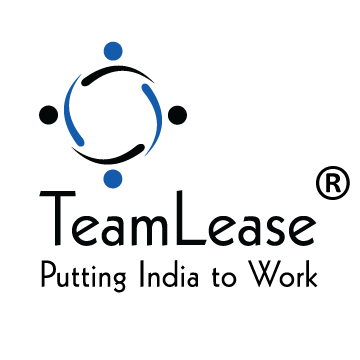Five Interventions to Boost Formal Non-Farm Jobs

India has witnessed exponential economic growth in the past decade, but it is yet to deliver mass economic prosperity and hence needs to implement specific policy interventions in the budget. The budget should focus beyond offering piecemeal solutions and choices between manufacturing or services; exports or domestic consumption; raising tax collections or improving ease of doing business, etc. to offer a concerted plan to improve productivity and enhance formal employment. An over-reliance on monetary and fiscal policies has failed to deliver sustainable mass prosperity and also rendered us ineffective and poor ancestors for our future generations.
Jan Vishwas 2.0
The Jan Vishwas 2.0 brought significant changes in civil compliances that pushed small employers to corruption. However, only 113 of 25,000 jail provisions were eliminated. The new budget should introduce a revamped Jan Vishwas 2.0, articulated by a committee of experts, defining the civil offences to be penalised. This reform would reinforce investments, compliance, and productivity.
Increase Net Income
Current monthly payroll deductions (like EPFO, ESI, etc) are complicated, demanding 35% for employees with monthly salaries up to Rs. 21000 while only 5% for those with salaries above this limit. This large gap makes informal employment more appealing than formal ones to low-wage employees.
The budget should make employee’s provident fund contributions flexible while increasing employer contributions from 12% to 13%. The regulation of lower take-home pay for formal employers should be removed as their advanced technology and skilled workforce only created the possibility of higher wages.
Portable and Optional Social Schemes
There is a shift in employment from long-term stable to short-term flexible roles but the social security schemes for employees are linked only with their employers. This adds to many inactive EPFO accounts with Rs. 48,000 crore in unclaimed funds and unreasonable ESI yearly premiums.
The budget must allow employee’s choice of savings between PF or health insurance. This fosters healthy competition between EPFO and ESI, enabling continuous employee benefits.
Compliance and DPI Integration
The new budget should propose a digital interface for all government regulatory compliance, maintained by an independent body – the National Compliance Corporation.
Under this system, each employer will have a registered Unique Enterprise Number for their records and workflows. This is seen as an eco-friendly approach that reduces paperwork and allows unified monitoring of employers in one place.
Unified Labour Code
The scattered labour laws make it difficult for employers to comply with them. So, the budget should announce a single labour code for all the 97 industries in the central list to follow effectively.
Many state governments reformed their labour laws to promote job sustainability and create employment opportunities. This single labour code will lay the foundation for employee protection and formal employment growth.
Conclusion
Policies should be framed on self-sufficient principles for sustainable employment growth. Work enables us to grow professionally and personally in various aspects beyond earning money. The budget shall bring interventions that ensure the productivity and thriving of formal non-farm jobs.
Latest Articles
35 Years After Economic Liberalisation — India’s Journey Ahead
India’s landmark 1991 economic liberalisation marked a decisive break from a tightly controlled, inward-looking economic model. Triggered by a balance-of-payments crisis, the reforms dismantled licence...
Read More7 Big Takeaways on Salary Growth in India’s MEI Sector
The Manufacturing, Engineering, and Infrastructure (MEI) industry in India is geared up for a strong year, with an expected salary growth of 7.9% in FY...
Read MoreMass Prosperity from Higher Productivity
India created mass democracy on the infertile soil of the world's most hierarchical society but failed to create mass prosperity on the fertile soil of...
Read MoreHigh-wage jobs can rev up Punjab
THE oft-quoted Punjabi aphorism, Khaada peeta lahe da, Baki Ahmed Shahe da (eat and drink whatever you can because the invader will take the rest), may feel...
Read MoreAre employers ready for India’s labour code overhaul?
Every sturdy building depends on a strong foundation. When the ground beneath shifts, cracks emerge, revealing vulnerabilities once hidden from view. For decades, India’s blue-...
Read More




